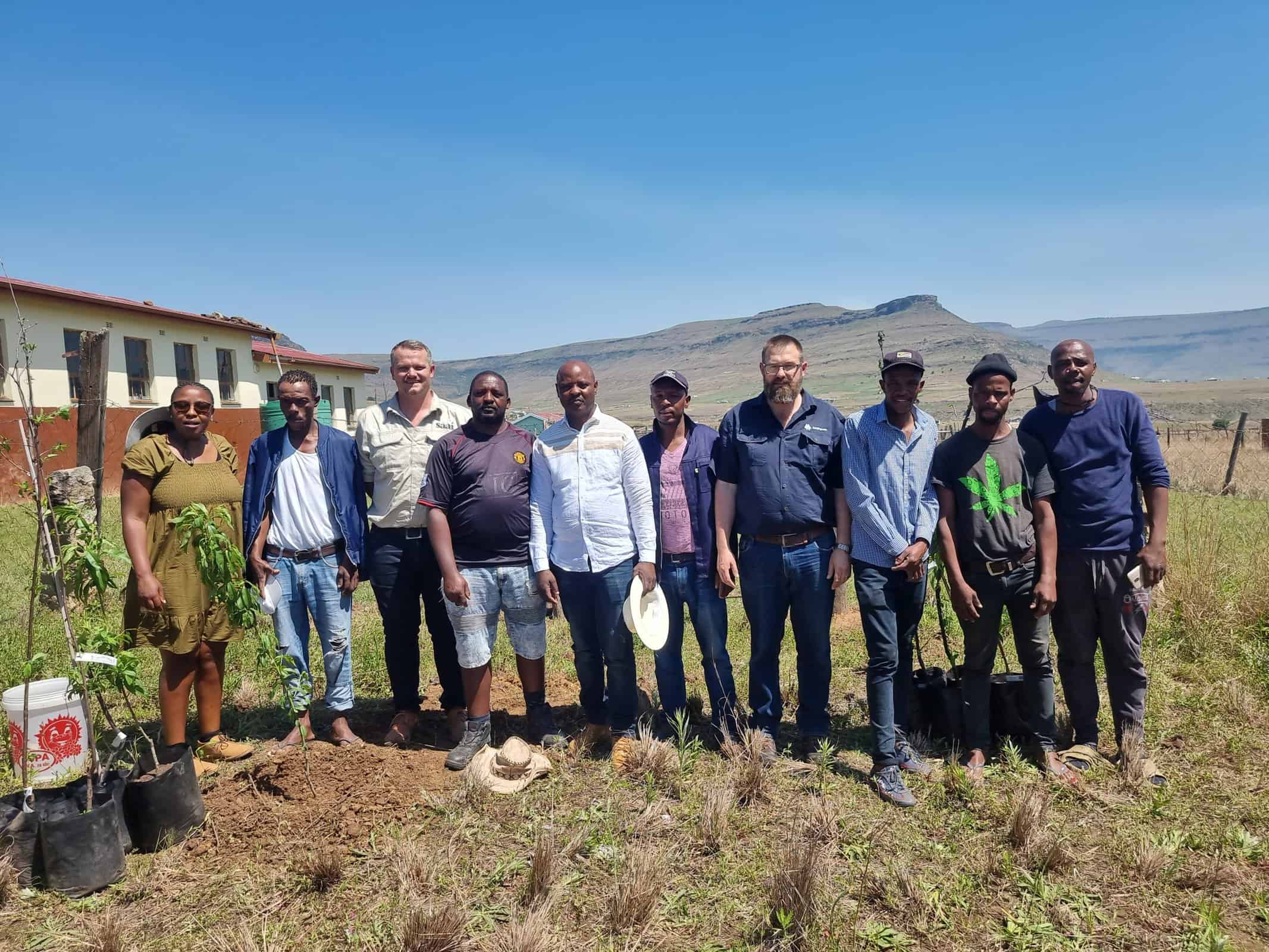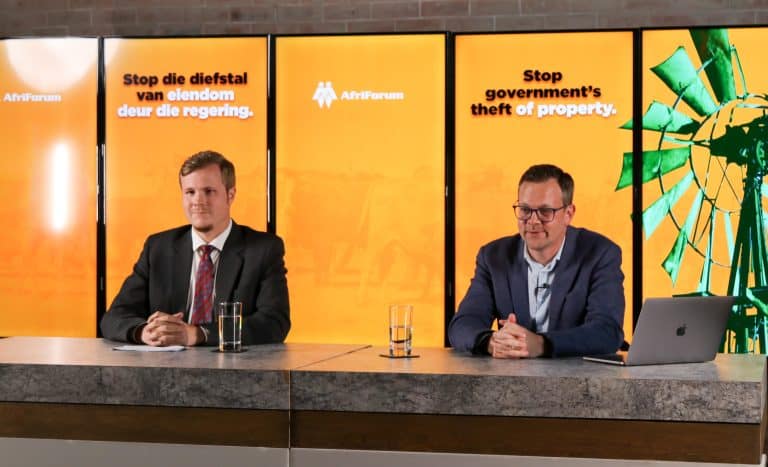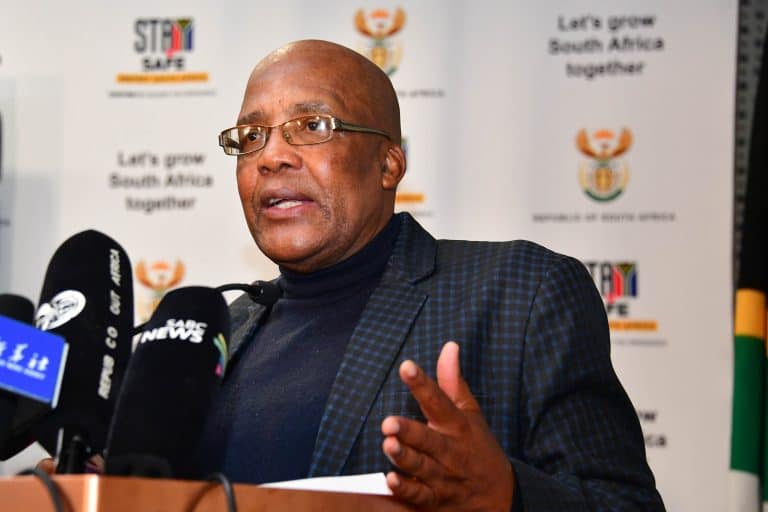Establishment of smart agrihood boosted with tree planting at school
AfriForum and Saai joined hands with iNkosi Zwelothando Mabandla of the AmaBhele kaJamangile Traditional Community near Maclear in the Eastern Cape to realise the vision of the establishment of a self-sufficient community through the creation of a smart agrihood by planting trees at the Mqokolweni Junior Secondary School. Ten fruit trees, including peach, plum, apricot and nectarine were planted to empower the school to teach learners about the agricultural value chain and self-sufficiency. The trees will create the opportunity for the learners to learn about caring for trees and the wealth creation possibilities relating to fruit production, processing and sale of products.
“We are following a process of restoration to re-establish the AmaBhele kaJamangile Traditional Community as a self-sufficient community to break the chains of dependency. This can be achieved by developing our land, that is currently not optimally utilised, in a step-by-step process to create a smart agrihood and provide an opportunity for families to be part of a community that is accountable to each other. The planting of this trees at the Mqokolweni Junior Secondary School is a demonstration of our commitment to realise our vision and an example of thinking creatively about the utilisation of land,” says iNkosi Zwelothando Mabandla of the AmaBhele kaJamangile Traditional Community.
“We did not plant trees just for the sake of planting trees – the planting of these fruit trees provides Mqokolweni Junior Secondary School with the opportunity for children to learn about self-sufficiency and taking responsibility for something that can bear fruit in the future. This is a practical step in the implementation of the recognition and cooperation agreement AfriForum and the office of iNkosi Zwelothando entered into earlier this year, that also supports iNkosi Zwelothando’s vision of a self-sufficient AmaBhele kaJamangile Traditional Community. Our agreement specifically stipulates that we will cooperate on the promotion of community self-sufficiency and agricultural development, and that is what we are doing,” says Barend Uys, Head of Intercultural Relations and Cooperation at AfriForum.
“As a family farmer network, Saai understands the developmental opportunities brought about by the vision of changing an area where agricultural land is under-utilised to an agrihood. The idea of utilising land available at a school to plant fruit trees that enables the school to practically teach the wealth creation possibilities of farming and to make it easier for children to understand that the value chain that ensures that we all have food to eat starts at primary production is fully supported by Saai and that is why we are part of this initiative,” says Dr Theo de Jager, Executive Board Chairperson of Saai.
AfriForum and Saai will assist the office of iNkosi Zwelothando with the future expansion of this initiative to other schools in the AmaBhele kaJamangile Kingdom to realise the vision of establishing a self-sufficient community.











